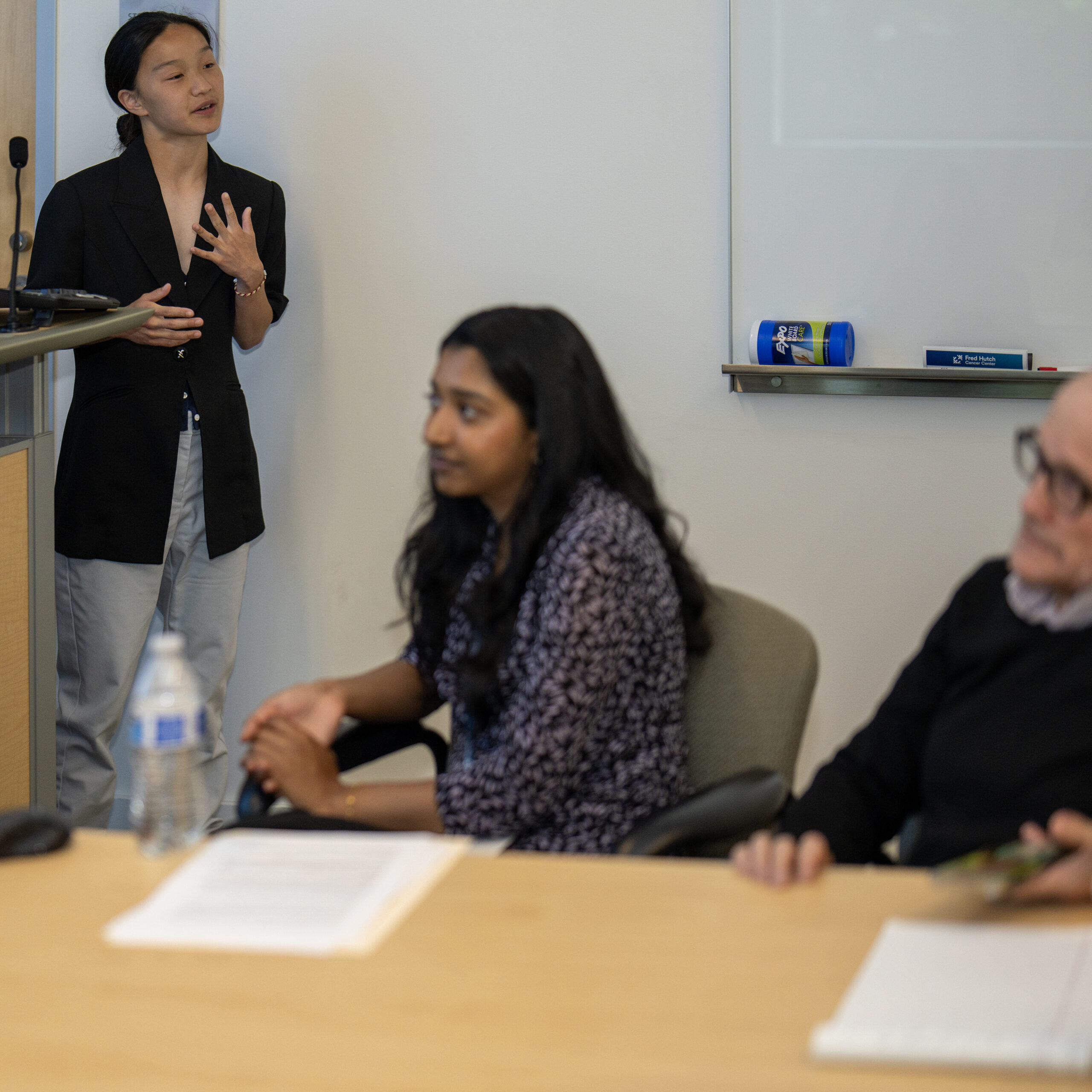Reflection on my personal experience tackling a new research paradigm

I’ve always believed in challenging myself to learn new methodologies and explore new fields in my research. Yet, there’s a fine balance between tackling a new challenge and feeling over your head. Reflecting on my past summer conducting a project in a completely new research paradigm, I wanted to take a moment to share my experience in the hopes of encouraging other students to be unafraid to undertake novel endeavors.
I had the life-changing opportunity to research the dose-response of the oral antiviral ensitrelvir for treating mild to moderate symptoms of SARS-CoV-2 with the Schiffer Lab starting this past June as an intern in the Fred Hutchinson Cancer Center Infectious Disease Sciences Internship Program. This project employed a very different application of my interests in healthcare and computer programming than I’d ever done before. Wide-eyed with amazement and curiosity, I delved into the fields of pharmacology, clinical trials, mathematical modeling, infectious diseases, and computational simulations. I remember learning about my project goals for the first time and thinking: “Wow, there are thousands of other students who would make a much better intern on this project”. This overwhelming imposter syndrome is something that I’ve often struggled with during my past research experiences when walking into new fields for the first time. But, thanks to the incredible mentorship of the Schiffer Lab and the tips that they shared with me, I overcame this fear and was able to grow into a more interdisciplinary and confident researcher this summer. I hope to pass on this same inspiration to other students here.
Find your “why”
Identifying my core reason why I’m interested in my research is the main motivating driver that helps me tackle situations of uncertainty. Especially when I feel like an “imposter”, my “why” has given me the courage to persist. In the case of my research with the Schiffer Lab, I was very interested in accelerating the timeline of getting effective medicine into the hands of patients, especially those in underserved communities. That’s why the field of computational modeling in pharmacology drew me in. I had learned that various forms of computational modeling of everything from the biological interactions of potential drugs to clinical trial simulations were helping to accelerate the drug discovery and drug approval process. By translating the real-world into mathematical models and taking advantage of the massive computational power, we could rapidly create and distribute medicines that meet the demands of urgent diseases. I reminded myself of this reason each time I began to question my abilities to complete the research project. The patients I met in underserved communities who desperately needed faster solutions stood by my side when I faced my doubt. They inspired me to lean into every new challenge.
Share your “superpower”
When I feel in over my head, I often forget that I still have strengths to contribute to my team and project. The first few days of my internship were a hurricane of complex differential equations and mathematical models. I certainly didn’t feel like I could become a math major anytime soon! Only through the encouraging work sessions with my mentors that I realized that my experience in Python programming was a valuable asset for writing efficient scripts to fit the best parameters for these mathematical models. By leaning into this strength, I was able to work closely with my colleagues to expand our software to build pharmacokinetic and pharmacodynamic models for ensitrelvir. It was so rewarding to put our heads together to build up a software program, and I got an excited thrill each time I was able to help innovate a creative idea. This research project helped me gain the confidence to not only recognize my research strengths, but also wield them alongside my colleagues’ strengths to build better solutions.
Ask questions
It is natural that new topics will raise new questions. All. The. Time. I’m incredibly grateful to the Schiffer Lab for enthusiastically discussing these questions with me and encouraging me to reach out to them. In general, I’ve found that research mentors are almost always overjoyed to help you understand their work. Please do not be afraid to ask questions. Write down what puzzles you encounter when you read the literature. Flag interesting results in your experiments to discuss in your next meeting. Persistent bugs in your code are always best addressed by multiple heads instead of just yours. I learned so much about the biological basis behind estimating different model parameters and gained an intuition for the most effective model fits because I gathered the courage to ask questions about my colleague’s research. This rewarding takeaway was made possible by curiosity.
Embrace the open-ended
I sometimes tend to expect perfection from my research work. But, in the real world, I’ve found that projects don’t end with a punctuation mark, a grade, and Dean’s Date. Instead, they feed into a larger movement of ideas and continue to evolve. By embracing that my research would grow beyond the end date of my internship, I was able to challenge myself to explore new concepts and ideas that initially seemed too intimidating to tackle in just one summer. Now, I’m able to continue pursuing these ideas into the school year as I extend my research with the Schiffer Lab. I encourage everyone to overcome the perceived limits in their work and to not be deterred from the open-ended. You never know where the unknown will take you!
— Yubi Mamiya, Engineering Correspondent

